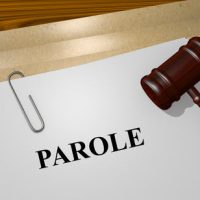How Does Parole Work in New York?

Parole is a vital component of the criminal justice system in New York. Parole gives inmates the chance to be released from prison before serving their full sentences under specific conditions. It is crucial for those facing criminal charges, those in jail, and family members of defendants or inmates to understand how parole works. In this article, we discuss how parole works in New York.
What Is Parole?
Parole is when an inmate is released from prison under certain conditions before they complete their full sentence. Parole is an opportunity for people to serve the remainder of their prison sentence outside of prison under supervision. With parole, the inmate is released from prison but must live up to a series of responsibilities. If a parolee (someone released from prison on parole) does not follow the rules, they risk being sent back to prison. In New York, parole is granted by the State Board of Parole to eligible individuals incarcerated in the state’s Department of Corrections and Community Supervision (DOCCS) facilities. Parole is not a right. Instead, it is a privilege for inmates who seem capable of following the rules and reintegrating into society. The State Board of Parole is part of the DOCCS.
Eligibility for Parole in New York
Not all inmates in New York are eligible for parole. In New York, whether an inmate qualifies for parole depends on the type of sentence they received. There are two types of prison sentences in New York: determinate and indeterminate. A determinate sentence is where the court sets a maximum term of incarceration in whole or half years. On the other hand, an indeterminate sentence is where the court has established a minimum period of imprisonment and a maximum term of imprisonment, such as 25 years to life in prison. Those serving indeterminate sentences are eligible for parole after reaching their minimum sentence, such as 25 years on a 25-year to life sentence. Regarding release on a determinate sentence, the Board of Parole does not have discretionary authority. Also, a person’s behavior while incarcerated may impact their eligibility for parole.
It is vital to note that some violent offenses, such as sex offenses, may come with additional restrictions that affect parole eligibility. It is also crucial to note that even if a person is eligible for parole, it is never guaranteed, as it is not a right but a privilege.
The Parole Hearing Process
The Board of Parole conducts parole hearings in New York. As the inmate approaches their parole eligibility date, a hearing is scheduled. During the hearing, the inmate’s records are reviewed, including their behavior in prison and the details of the original crime. With the help of an attorney, an inmate can present evidence and argue for their case. If the inmate is granted parole, they are released from prison under specific conditions. If denied, the inmate can reapply for parole at a later date. The Board imposes a “hold” of 12, 24, or 36 months until the next interview or hearing. A longer hold may be imposed depending on the original offense. An inmate cannot reapply before the hold expires.
Contact an NYC Criminal Defense Attorney
For legal help, contact our skilled NYC criminal attorney, Mark I. Cohen, at 917-414-8585.








